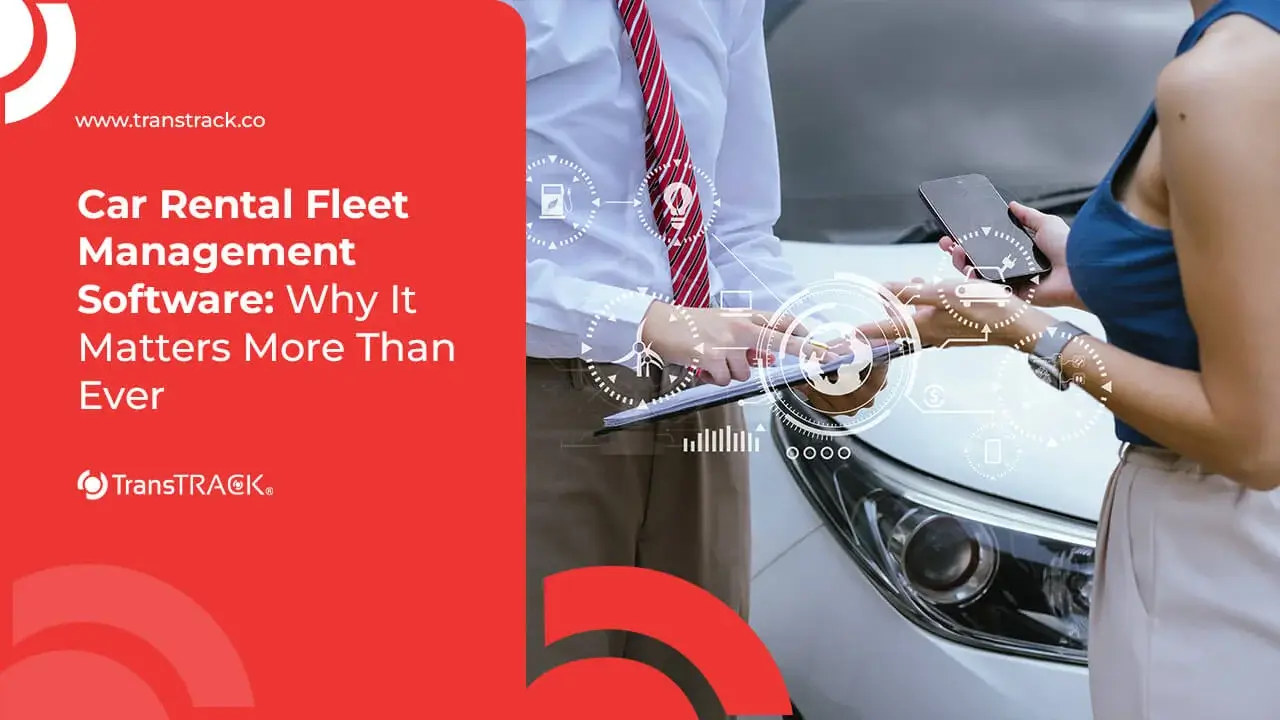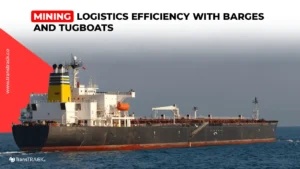Car Rental Fleet Management Software: Why It Matters More Than Ever
Posted on July 14, 2025 by Nur Wachda Mihmidati

In the fast-paced car rental industry, success hinges on operational efficiency, fleet availability, and customer satisfaction. As demand fluctuates across locations and seasons, rental companies face mounting pressure to manage their vehicles smarter — ensuring the right cars are available, well-maintained, and delivered on time.
Traditional methods are no longer sufficient. Delayed turnarounds, unexpected breakdowns, and underutilized vehicles can quickly eat into profits and damage brand reputation. That’s why more car rental businesses are turning to fleet management software like TransTRACK, to gain real-time visibility, streamline operations, and boost performance at every level.
The Challenge of Managing Car Rental Fleets
The car rental industry is fast-paced and highly competitive. To meet customer demands while maintaining profitability, rental companies must operate with exceptional efficiency. However, managing a large and distributed fleet presents a range of complex challenges that can impact both service quality and operational costs.
1. Vehicle Utilization and Availability
Balancing vehicle supply with fluctuating demand is one of the most persistent challenges. Low utilization leads to idle assets and lost revenue, while overbooking can result in dissatisfied customers. Rental companies must analyze patterns, predict peak periods, and optimize vehicle rotation across branches.
2. Maintenance and Downtime
Ensuring vehicles are well-maintained without disrupting availability is critical. Unplanned breakdowns or overdue servicing not only affect customer satisfaction but also increase long-term maintenance costs. Scheduling preventive maintenance and tracking vehicle health in real time are essential practices.
3. Fleet Tracking and Security
With hundreds or thousands of vehicles in circulation, theft and misuse are constant risks. Without real-time tracking and geofencing, companies may lose control over their assets. GPS-enabled fleet management solutions can help monitor vehicle location, detect unauthorized use, and provide rapid response during emergencies.
4. Administrative Complexity
From insurance and registration management to customer contracts and damage documentation, the administrative load in rental operations is immense. Manual processes often lead to errors, compliance issues, and poor customer experiences. Automation and centralized data systems can significantly reduce the burden.
5. Fuel and Operational Costs
Fuel is one of the largest expenses in any vehicle-based business. Tracking fuel usage, detecting anomalies, and promoting fuel-efficient driving behavior are all necessary to protect margins. In addition, optimizing routes and vehicle dispatch can further reduce costs.
6. Customer Experience and Expectations
Customers expect fast service, clean vehicles, and transparent pricing. Meeting these expectations while managing logistical and operational constraints is challenging. A lack of visibility into fleet readiness or delayed handovers can result in negative reviews and lost business.
Business Value of a Fleet Management System for Car Rentals
In the competitive car rental market, operational efficiency and customer satisfaction are vital for success. A well-integrated Fleet Management System (FMS) plays a critical role in helping rental companies streamline operations, maximize asset usage, and elevate service quality. Below are the key areas where an FMS delivers measurable business value:
1. Reducing Operational Downtime
Unplanned downtime can severely impact rental availability and revenue. An FMS helps by providing real-time diagnostics, service alerts, and automated maintenance schedules. This ensures vehicles stay road-ready and reduces the chance of last-minute cancellations due to mechanical issues.
2. Increasing Utilization Rate per Vehicle
Fleet management systems enable better demand forecasting and vehicle rotation strategies. By tracking usage patterns and branch-level demand, rental companies can ensure vehicles are deployed where they are needed most, reducing idle time and increasing revenue per asset.
3. Predictive Maintenance to Avoid Breakdowns
An FMS uses data-driven insights to detect early signs of wear and tear. This predictive approach to maintenance allows companies to service vehicles before failures occur, improving safety, avoiding service disruptions, and extending vehicle lifespan.
4. Optimizing Inventory and Location Rotation
With real-time fleet visibility, rental companies can redistribute vehicles across branches based on booking trends and availability gaps. This avoids overstocking in low-demand areas and understocking in high-demand ones, ensuring the right cars are in the right places at the right time.
5. Enhancing Customer Experience with Faster Turnarounds
An integrated system helps coordinate cleaning, refueling, inspections, and readiness checks more efficiently. As a result, vehicles can be prepared and delivered to the next customer faster, reducing wait times and increasing satisfaction — especially during peak travel seasons.
Benefits for Users and Car Renters
A modern Fleet Management System doesn’t just benefit car rental operators — it directly improves the experience for renters. Here’s how:
Reduced Wait Times
With optimized vehicle turnaround and real-time fleet tracking, cars are prepared and delivered more efficiently, minimizing delays during pick-up and drop-off.
Better-Maintained Vehicles
Predictive maintenance ensures that vehicles are regularly serviced and in top condition, offering a smoother, safer, and more reliable driving experience.
Improved Availability and Booking Accuracy
Smart inventory management and automated scheduling increase the likelihood that the vehicle renters want is available — and ready on time — with fewer overbookings or cancellations.
Enhanced Safety
Fleet systems monitor vehicle health, driving behavior, and maintenance status, ensuring that renters are always placed in safe, roadworthy vehicles.
Impact on Revenue and Customer Retention
Implementing a Fleet Management System directly supports business growth by improving operational reliability and enhancing customer satisfaction. Key benefits include:
Fewer Canceled Bookings Due to Vehicle Unavailability
By ensuring real-time visibility into fleet status and availability, rental companies can significantly reduce last-minute cancellations, protecting revenue and customer trust.
Transparent Data for Reporting and Business Growth
Accurate fleet usage data, maintenance history, and demand analytics empower managers to make informed decisions, optimize pricing strategies, and support scalable business planning.
Seamless Fleet Rotation to Meet Local Demand
With smarter fleet distribution and location-based demand forecasting, rental providers can ensure the right vehicles are available at the right branches — reducing idle time and capturing more bookings.
Conclusion
Managing a car rental fleet efficiently requires more than spreadsheets and manual tracking. With challenges like vehicle downtime, uneven demand, location-based fleet rotation, and rising customer expectations, rental businesses must adopt digital solutions that offer visibility, control, and operational agility.
A Fleet Management System provides the tools needed to optimize vehicle usage, reduce costs, and improve turnaround times — all while delivering a smoother experience for customers. Backed by real-time data and automation, your rental operations can scale smarter and stay competitive.

Start with TransTRACK Fleet Management System
Take control of your rental fleet with TransTRACK. From predictive maintenance to intelligent vehicle distribution, our platform empowers your business to operate more efficiently and serve customers better.
Unlock greater profitability and customer satisfaction — start your digital fleet transformation with TransTRACK today.
Recent Post
Mining Logistics Efficiency with Barges and Tugboats
February 18, 2026Supply Chain Transformation through Intelligent Supply Chain Automation
February 17, 2026Topic :
 Bahasa Indonesia
Bahasa Indonesia









